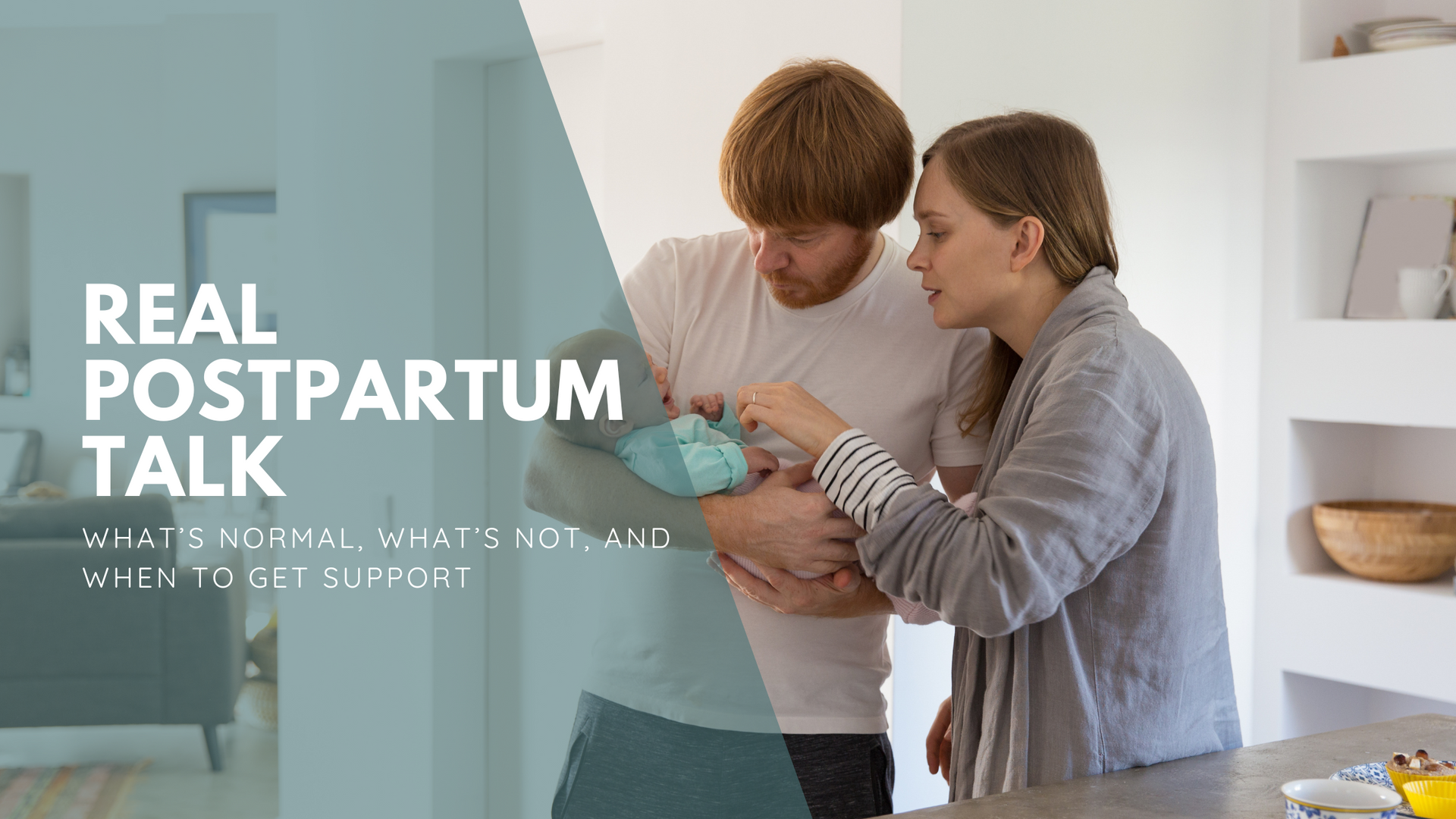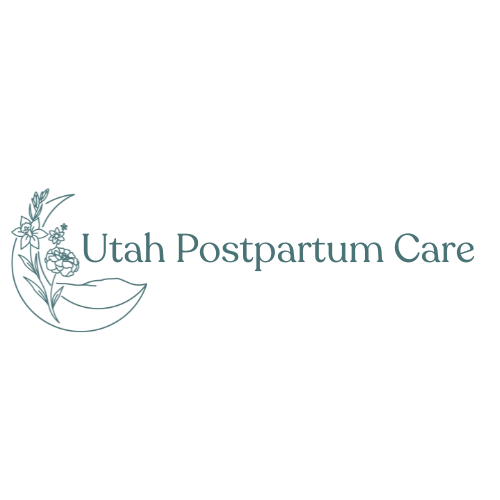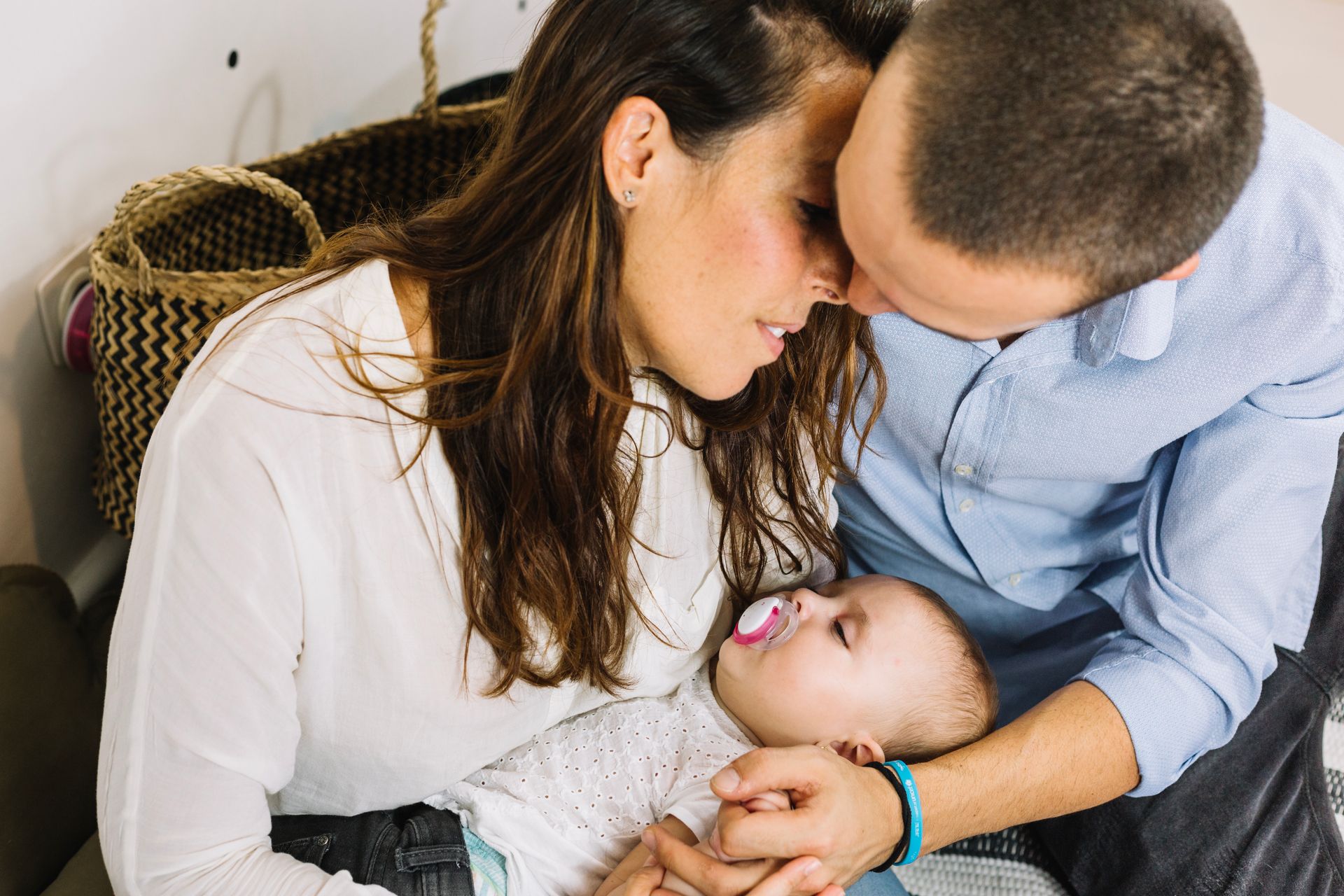Real Postpartum Talk: What’s Normal, What’s Not, and When to Get Support
Real Postpartum Talk: What’s Normal, What’s Not, and When to Get Support

Postpartum is often thought of as a sweet time of bonding. But for most parents, the truth is messier. There’s bleeding, tears (sometimes yours, sometimes the baby’s), mood swings, and a whole lot of wondering, “Is this normal?”
As postpartum doulas, we’ve heard it all. We're here to provide you with honest answers, real support, and zero judgment. Let’s break down what’s normal, what might need a second look, and when to ask for help. You don’t have to figure this out alone.
What’s Normal in the First Few Weeks
Postpartum comes with a whole list of body, brain, and baby changes. Here’s what’s
typically expected (even if it’s not often talked about):
Physical Recovery
- Vaginal bleeding (lochia) that changes color and flow over time
- Cramps as your uterus shrinks back down
- Sore breasts, leaking milk, or engorgement
- Swelling in your legs or perineum
- Night sweats and chills as hormones shift
Emotional Ups and Downs
- Mood swings and irritability
- Crying randomly
- Feeling overwhelmed, foggy, or “off”
- Needing more sleep than you’re getting
- Feeling unsure or disconnected from your baby for now
Reminder: Normal doesn’t mean
easy. And just because it’s expected doesn’t mean you don’t deserve support.
What’s Not Normal (And Needs Extra Attention)
Some postpartum experiences go beyond the expected recovery zone. Here’s when to check in with your provider or reach out for help:
Physical Signs to Watch For
- Soaking a pad in under an hour
- Large blood clots (golf-ball-sized or bigger)
- Foul-smelling discharge or fever
- Severe pain not relieved by meds or rest
- Signs of infection around stitches or C-section incision
Emotional or Mental Health Red Flags
- Persistent sadness or hopelessness
- Racing thoughts or constant worry
- Panic attacks or intrusive thoughts
- Feeling disconnected from reality
- Thoughts of harming yourself or your baby
Postpartum mood and anxiety disorders (PMADs) are real, common, and, most importantly, treatable. Asking for help doesn’t mean you’re broken. It means you’re brave, and it means there's hope for feeling like yourself again.
What About the “Gray Area” Stuff?
There’s a whole in-between zone in postpartum that’s
not an emergency but still deserves care.
Things like:
- Feeling touched out and overstimulated
- Struggling with feeding and wondering if baby’s getting enough
- Resenting your partner or crying more than usual
- Worrying that you’re not bonding “right”
- Wondering if you’re allowed to ask for help
Let’s be clear: you don’t need to be in crisis to deserve support. If something feels off or just heavier than you expected, that’s enough reason to reach out.
How Postpartum Support Can Help You Feel Like Yourself Again
At
Bountiful Doulas, we walk with you through the messy middle, the part between "you just had a baby" and "you’ve got this."
What we offer:
- Hands-on support with newborn care and feeding
- Emotional check-ins without judgment
- Light housework so you can rest or shower
- Referrals to therapists, IBCLCs, pelvic floor PTs, and more
- Gentle overnight care so you can actually sleep
Whether you’re dealing with everyday struggles or something more, you don’t have to carry it alone.
Book a consultation with us today to get support that meets you where you are—no pressure, just real help.
FAQ
How long does postpartum bleeding last?
It varies, but typically up to 6 weeks. Flow should gradually lighten—if it gets heavier again, check in with your provider.
What’s the difference between “baby blues” and postpartum depression?
Baby blues are common and usually resolve within two weeks. If symptoms last longer or worsen, it could be postpartum depression or anxiety.
Is it normal to feel disconnected from my baby at first?
Yes. Bonding is a process, not a moment, and it looks different for every parent.
When should I reach out for help?
If you’re not feeling like yourself, having scary thoughts, or just overwhelmed, now is the right time. Sooner is always better.
Can a postpartum doula help with mental health?
We’re not therapists, but we provide emotional support, ease daily stressors, and connect you to the right professionals when needed.
Note: Bountiful Doulas is growing into
Utah Postpartum Care! Same team, bigger vision, deeper support across Utah.











